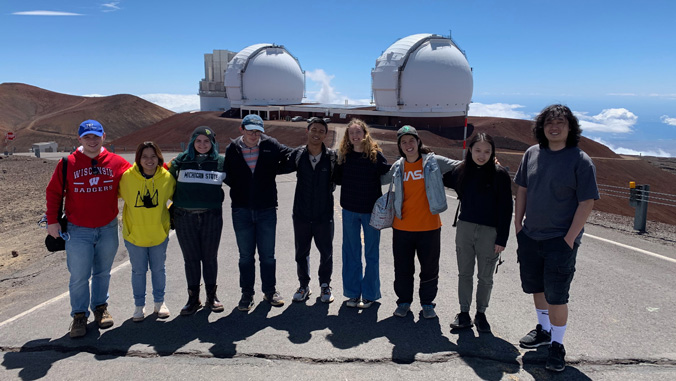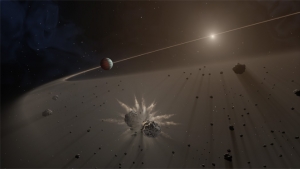
Aspiring astronomer Anna Gardner is mesmerized by stars and the complex path they embark on from birth to death. Last summer, the University of Hawaiʻi at Mānoa astrophysics major honed in on the research of whitedwarfs, the final stage of evolution for most stars when they start shutting down. Gardner was one of 14 students selected to participate in the UH Institute for Astronomy (IfA) undergraduate research program enabling her to conduct observations on Maunakea in 2021.
“I gained so much skills on both astronomy and programming…I was a beginner and didn’t know much about programming when I first started this program,” Gardner said. “However, through this experience, I am now able to use some programming skills and apply them to my astronomy research and to other classes.”
Gardner’s paid internship was funded through the National Science Foundation Research Experiences for Undergraduates (REU) program. Aside from spending time at the research observatories, she was also able to work with IfA astronomers who conduct cutting-edge research in a wide range of astrophysical disciplines and in the development of new telescopes, instruments and adaptive optics.
Internships available

Interested students can apply online for REU’s summer 2022 undergraduate research program, May 24–July 29. The internship is 10 weeks and provides a $6,000 stipend.
Aside from observing runs on one of the telescopes on Maunakea, students will also have the opportunity to carry out research at one of the IfA locations on Oʻahu, Maui or Hawaiʻi Island. Participants will also engage in daily journal clubs, weekly seminars and colloquia, given by faculty and visiting scientists, and training on scientific writing. The application deadline is January 31, 2022.
“Our mission is to provide individually mentored research experiences at the forefront of astronomical exploration to foster the careers of a diverse cohort of aspiring professionals in science, technology, engineering and math (STEM),” said Robert Jedicke, REU co-director.
The REU program launched at IfA in 2001 and has trained more than 150 students in a wide range of fields of astronomy. Most participants have ventured into STEM careers in academia and industry.
For more information, email: reu-directors@ifa.hawaii.edu.
This program is an example of UH Mānoa’s goal of Enhancing Student Success (PDF) and Excellence in Research: Advancing the Research and Creative Work Enterprise (PDF), two of four goals identified in the 2015–25 Strategic Plan (PDF), updated in December 2020.

